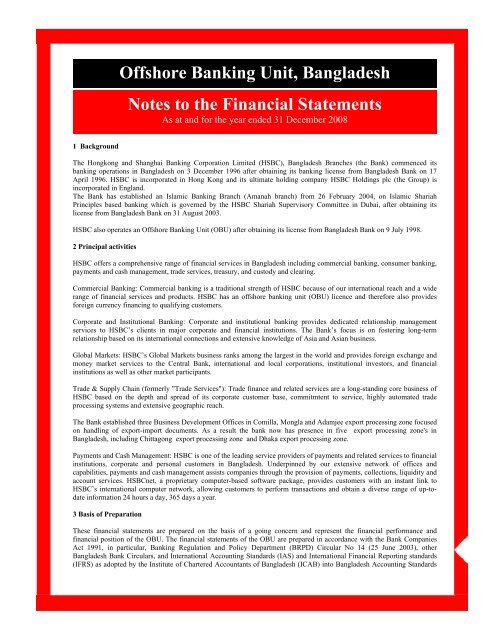Offshore Company Formation : A Comprehensive Guide for Entrepreneurs
Offshore Company Formation : A Comprehensive Guide for Entrepreneurs
Blog Article
Recognizing the Legal Implications of Offshore Business Formation

Legal Structure for Offshore Companies
When establishing an offshore business, understanding the legal framework regulating its formation and operation is vital for conformity and risk administration. Offshore business operate under particular legislations and laws that differ from those of onshore entities. The lawful structure for overseas firms commonly includes stipulations for business registration, investor needs, supervisor obligations, and tax obligation responsibilities.
Company registration includes sending the required paperwork to the proper regulative authorities in the picked territory. This procedure often needs thorough info regarding the business's framework, shareholders, and intended tasks. Furthermore, overseas firms should stick to particular shareholder needs, such as preserving a register of shareholders and keeping this details approximately day.
Supervisors of offshore business have fiduciary responsibilities to act in the finest passions of the company and its investors. By sticking to the legal structure controling overseas business, organizations can operate with confidence while minimizing lawful threats.


Tax Ramifications and Rules
Comprehending the tax obligation implications and laws is paramount when considering the establishment and procedure of an offshore company. Offshore companies are frequently subject to favorable tax obligation regimens, supplying lowered or no tax rates on foreign-earned revenue.
Tax obligation policies for offshore business vary significantly across jurisdictions, and it is important to seek professional suggestions to recognize the particular requirements and commitments. Extensive understanding of tax obligation laws and guidelines, as well as appropriate tax obligation planning, are essential to guarantee the certified and successful operation of an offshore firm.
Conformity Needs and Reporting
Guaranteeing conformity with regulative needs and maintaining exact coverage are essential aspects of taking care of an offshore firm successfully and transparently. Offshore firms have to comply with the laws and regulations of both the jurisdiction in which they are integrated and any kind of other pertinent territories where they perform service. Compliance requirements typically include filing annual returns, financial declarations, and tax obligation reports with the appropriate authorities. Failing to fulfill these responsibilities can lead to fines, fines, or also the cancellation of the firm's enrollment.
In addition to regulative compliance, offshore companies are usually subject to reporting needs to make certain transparency and avoid unlawful tasks such as money laundering or tax obligation evasion. Reporting responsibilities may include revealing information about the company's possession structure, monetary activities, and beneficiaries. This information may need to be shown to regulatory bodies, tax obligation authorities, or various other governmental agencies, relying on the jurisdiction.
Preserving exact and comprehensive records is crucial for demonstrating compliance and replying to any type of questions or audits efficiently. Offshore companies must carry out durable coverage systems and internal controls to ensure that they fulfill all legal needs and operate with integrity.
Possession Security and Personal Privacy Laws
In the realm of offshore business formation, an important consideration is the interaction between asset defense approaches and privacy legislations. Offshore territories frequently provide enhanced property protection mechanisms that protect properties from possible visit this website threats such as legal actions, creditors, or political instability in the home nation. By structuring assets within an offshore business, people can secure their wide redirected here range and diversify their holdings throughout various legal frameworks. Personal privacy laws in overseas jurisdictions contribute to preserving discretion and anonymity for firm owners. These legislations limit the disclosure of sensitive information, making it challenging for external celebrations to accessibility details about the business's procedures or ownership structure. This level of privacy can be useful for individuals seeking to safeguard their possessions from public examination or rivals. It is crucial for individuals to browse these legislations fairly and transparently, making sure conformity with both overseas laws and the lawful requirements of their home nation. Eventually, comprehending the detailed relationship in between possession protection techniques and personal privacy laws is critical when thinking about overseas business formation.
Dangers and Difficulties to Take into consideration
When venturing right into overseas business development, prudent consideration of possible threats and challenges is necessary for informed decision-making and strategic preparation. One significant threat to think about is the possibility of increased scrutiny from governing authorities because of the regarded organization of offshore entities with tax obligation evasion and cash laundering. This heightened scrutiny can cause considerable conformity needs and possible lawful effects if not properly addressed. Additionally, political instability or changes in overseas jurisdictions can present a danger to the connection of operations and the defense of assets held by the offshore business.
Obstacles might additionally arise concerning the intricacy of offshore firm frameworks and the need for experienced legal and financial advice to navigate the detailed regulative structures of different territories (offshore company formation). Maintaining compliance with differing worldwide laws and guidelines, as well as possible language barriers click here to read and social distinctions, can further make complex the offshore firm formation process. It is critical to be familiar with these dangers and difficulties prior to waging overseas company development to mitigate prospective risks and ensure a smooth and lawfully sound facility
Final Thought
In verdict, overseas firm formation involves navigating complicated lawful structures, tax effects, compliance requirements, and privacy laws. Understanding these aspects is critical for mitigating obstacles and threats connected with offshore company operations. It is necessary for people and companies considering offshore business development to look for expert guidance to ensure conformity with policies and to safeguard their possessions successfully.
The legal structure for offshore companies commonly includes arrangements for business enrollment, investor needs, director obligations, and tax obligations.
Directors of offshore business have fiduciary duties to act in the ideal rate of interests of the business and its shareholders. By adhering to the lawful structure regulating offshore business, organizations can run with confidence while decreasing lawful threats.
In addition, political instability or changes in offshore territories can present a danger to the continuity of procedures and the security of properties held by the offshore firm. - offshore company formation
In verdict, offshore business formation includes browsing complicated lawful frameworks, tax obligation implications, compliance needs, and privacy laws.
Report this page